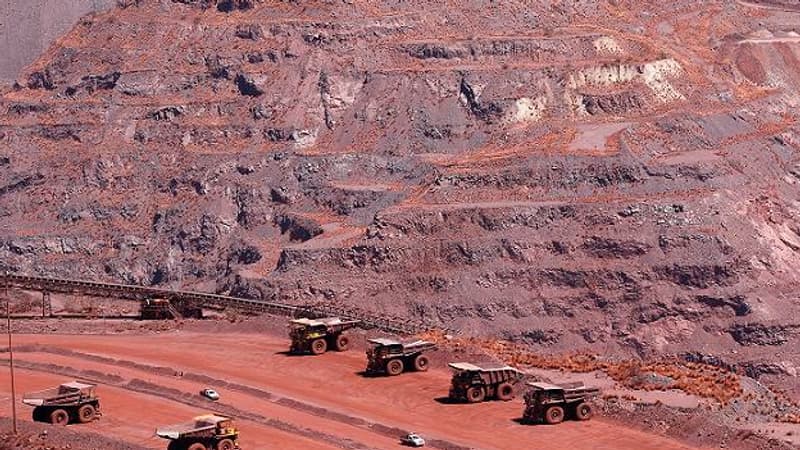He has almost full powers. China has one trump card in its trade negotiations with the United States: its control of most deposits of rare earths, strategic minerals essential to the modern economy and defense. Beijing also announced on Thursday new export controls on technologies used in the extraction and processing of these materials.
44 of the world’s 110 million tons are in China
Dysprosium, neodymium and cerium… rare earths are a group of 17 heavy metals that are abundant in the Earth’s crust. Its global reserves amount to 110 million tons, of which 44 million are in China, according to a study by the United States Geological Survey. But its extraction generates toxic pollution that makes many countries reluctant to take on its exploitation.
China’s party state has invested heavily in this sector, helped by more relaxed environmental regulations than in other countries. China has also filed a large number of patents on the production process, consolidating its dominance. According to the International Energy Agency, 92% of global production is currently refined in China.
More than 400 kilos of rare earths in the F-35
Rare earths are used in a wide range of everyday and high-tech devices, from light bulbs to guided missiles. Each has unique properties and are difficult to replace. Neodymium is used, for example, to make ultra-powerful permanent magnets found in the motors of guided missiles, ensuring their precision and efficiency.
The F-35 aircraft of the American manufacturer Lockheed Martin requires more than 400 kg of rare earths, according to a recent analysis by the American think tank Center for Strategic and International Studies (CSIS).
A negotiating lever for Beijing
Chinese exports of rare earths have slowed since early April, when Beijing began requiring domestic producers to obtain permits to export seven types of rare earths. The decision was widely seen as retaliation for tariffs imposed on Chinese goods by Washington.
Since then, ensuring access to these strategic materials has become a priority for US officials in talks with their Chinese counterparts. US Commerce Secretary Howard Lutnick said in June that he was convinced that concerns about access to rare earths would be “resolved.”
Strength position
Despite these promises, rare earths remain a major point of friction between the two powers, with Washington accusing Beijing of deliberately slowing down the approval of export licenses. The new measures announced Thursday by Beijing require authorizations to export technologies related to their extraction and further limit the export of Chinese rare earths by foreign entities, including neodymium-based magnets.
A strong dependency
It is not the first time that Beijing uses this card. China briefly suspended deliveries to Japan after tensions in disputed waters. Since then, Tokyo has made efforts to diversify its sources, for example signing agreements with Australian group Lynas for production in Malaysia and developing its recycling capabilities. But some experts say Tokyo has made only marginal progress, underscoring the difficulty of truly reducing dependence on China.
The US Department of Defense aims to develop domestic supply chains to ensure secure access to rare earths needed for certain weapons by 2027.
Source: BFM TV


